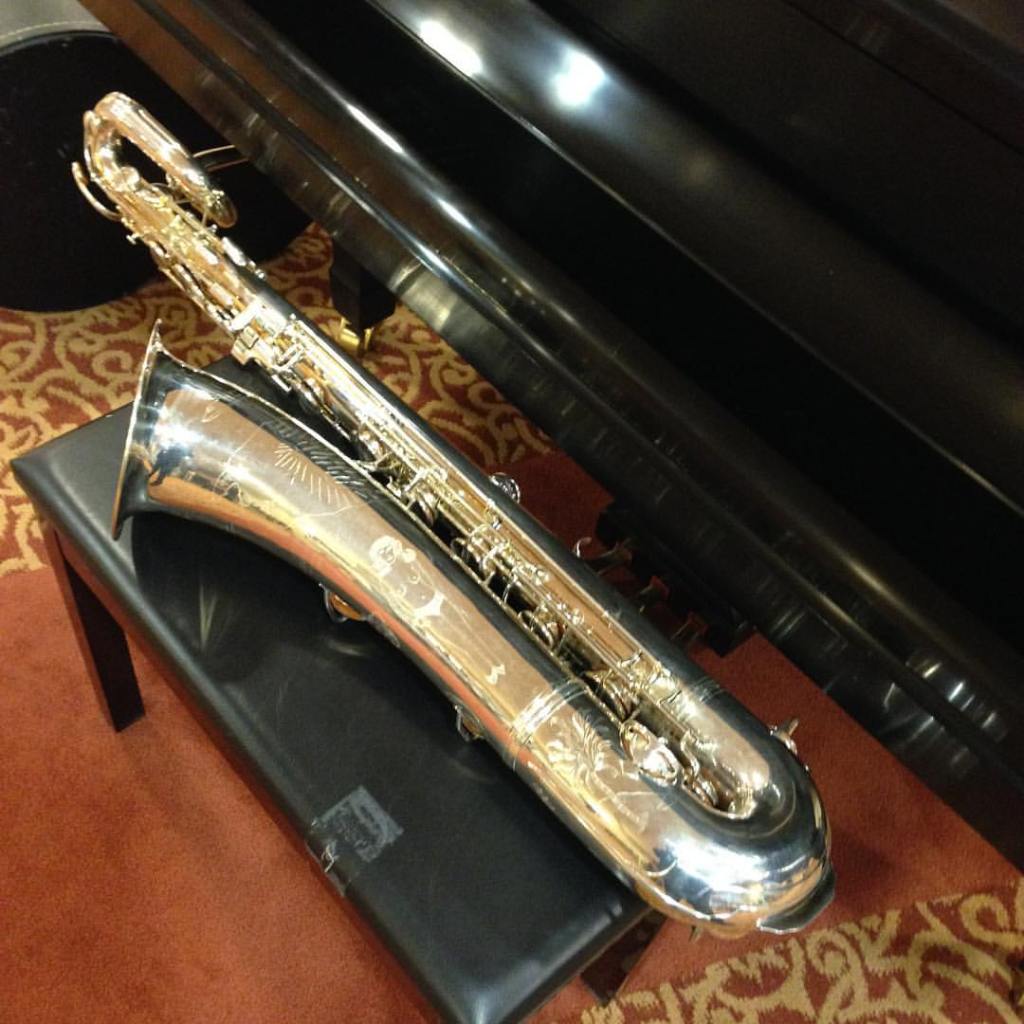I remember my first really great experience playing the baritone saxophone. It was in Elora, Ontario on a New Years gig with a jazz trio. I remember saying to the band, “I think that I could play this horn full time.” I had borrowed Mohawk College’s horn over the winter break (I’m not sure why) and just happened to take it to this gig (once again, I’m not sure why I did this).
I had always owned a bari mouthpiece and subbed in bands whenever a baritone player was needed, but I was a tenor player. I was going to follow in the footsteps of the great players – Sonny Rollins, Dexter Gordon, Stan Getz, Ben Webster and all of the other possible influences that I would encounter over the years. This would become a theme in my professional life for years – I would get called to play all of the other saxophones, clarinets, flutes regularly and my tenor would only come out on the gigs that I booked for myself, yet I was stuck on the fact that I was a tenor player.
In 2015, after years of struggling as a tenor player, not booking enough gigs and generally being frustrated in music, I got a call to play in the London Gentleman Record Band’s Tribute to Chaka Khan, which was run by one of my greatest friends and musical conspirators, Ed Lister. I ended up on the baritone saxophone book (with my 1969 Conn low Bb bari sax, Otto Link Tone Edge 5* and a Légère Signature #2.75) and it felt great! The show was a success and although I felt (and sounded) pretty green on bari, I felt like I once again had found a soft spot for this beast of a horn.
I started bringing both the tenor and baritone to my gigs, but I noticed a trend in my bookings – I was getting booked more frequently, but I was only getting booked on baritone sax. I was starting to fall in love with the big horn – the sound, the way it moved, it felt right.
At that time, in 2016, I was taking lessons with Petr Cancura and I approached him about my situation (while showing him my “new” Conn Transitional with a Hawaiian Lady engraved on the bell).

The exchange went something like this –
Richard – “I’m stuck. I bring my tenor to our lessons, but I’m really only getting hired to play bari and when I’m at home I just practice the bari.”
Petr – “So be a bari player.”
Richard – “I never thought of that…Okay.”
It was that simple.
This isn’t verbatim, but it’s pretty close to what happened that day. Petr also explained to me how great it would be for my playing to have the focus of the bari for a while and how it would improve my tenor playing if I ever chose to come back to it.
A few weeks later, I sold all of my other saxophones (which I would later replace with others – I’ll get into that later) and became a full time baritone saxophonist.
As I get deeper into this blog, I’ll recount experiences, stories, gear choices and how making the switch to the big horn has become my professional identity.